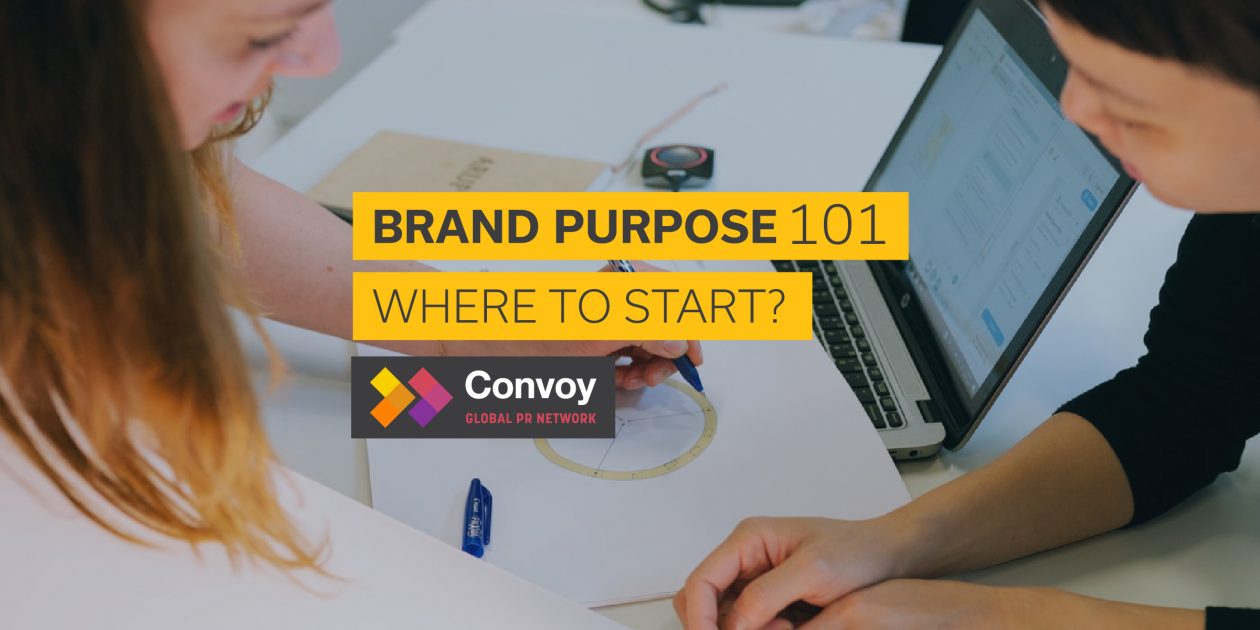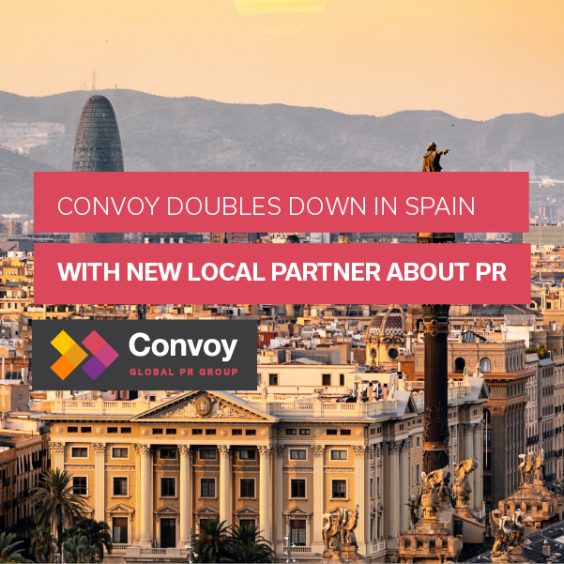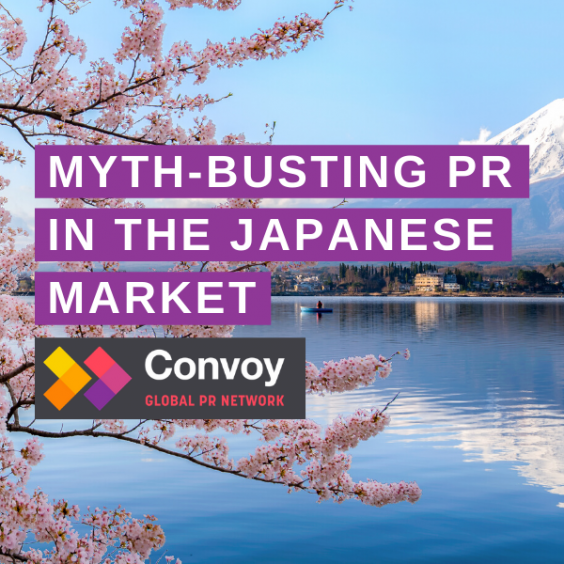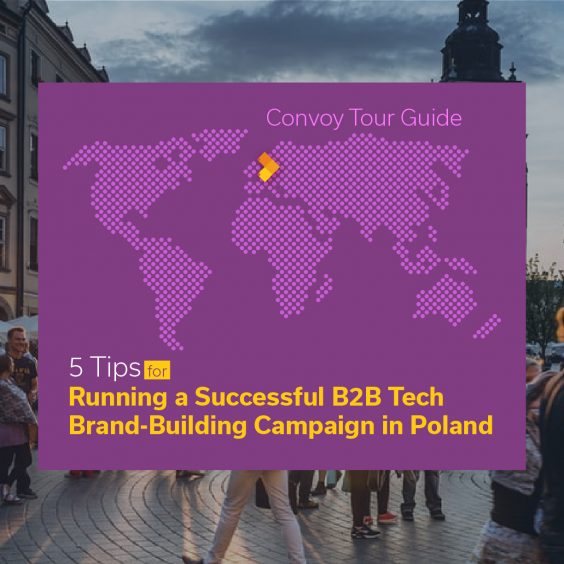Convoy PR Network partners, Elīna Egle and Kristīne Doroško of VA Purpose in Latvia offer their top tips for brands looking to prioritise ESG.
Purpose – a meaningful and lasting reason for an organisation to exist
Gone are the days of shareholder primacy – the universal acceptance that a company’s sole responsibility is to its shareholders. Today’s business leaders are increasingly looking towards a ‘shared value’ model, where financial performance is balanced alongside ESG (environmental, social and corporate governance) goals.
This has led to a rise in purpose-driven brands, which exist to solve a problem or meet a need in society. In fact, out of Wired’s 100 Hottest European Start-ups of 2021, at least half are trying to make the world a better place. Crucially, in recent years the commercial success of purpose-driven brands has outpaced that of their more traditional competitors. For instance, Unilever’s purpose-driven brands are growing 69% faster than the rest of its business, and with higher profit margins.
It’s no surprise then that many brands are looking to pivot to become purpose-led. But – let us warn you now – this is a long process and should not be taken lightly. It requires time, investment and a genuine desire to effect positive change in the world.
If we haven’t put you off yet, here are five top tips for starting your brand purpose journey.
-
First, figure out where you are now
First thing’s first. To understand where you can make the greatest possible positive change, you must learn how your business currently operates and how it’s perceived by customers, employees, suppliers, communities and shareholders.
A good place to start is by conducting ‘materiality analysis.’ In layman’s terms, this means talking to all stakeholders to understand how your company impacts the environment and society and which issues they consider the most important.
Materiality analysis can span all aspects of ESG, from waste management to water stewardship to the wellbeing of employees. Based on the results of this analysis, you can work out a detailed brand purpose action plan.
-
Ensure your purpose strategy aligns with your wider business goals
To prevent disconnect between different parts of your business, it’s crucial to set a consistent corporate agenda for brand purpose. Take the example of Coach, a maker of luxury leather goods that hit headlines for ‘green-washing’ earlier this year. On the one hand, Coach heavily promotes its sustainability credentials with an extensive ‘Care and Repair’ programme. But on the other, the brand deliberately slashes and dumps brand new goods that don’t sell within a certain time frame, destroying them so they cannot be used.
As this example demonstrates, when it comes to brand purpose, leadership buy-in – especially that of the CEO – is non-negotiable. To have any chance of success, purpose cannot be an afterthought; it must be a core business priority – ideally bound to corporate business targets and KPIs. Best practice is to ensure that all departments are involved in your ESG team.
-
Don’t pretend you’ve solved everything
The truth is that most purpose-driven brands aren’t perfect, but they are trying. For example, your brand may excel in corporate governance and employee empowerment, but still have some way to go on supply chain transparency. And that’s fine.
Consumers are becoming increasingly wise to ‘green-washing’ or ‘rainbow-washing’, and can easily see which brands aren’t being genuine. So, don’t pretend you’re solving everything – it’s a sure-fire way to lose consumer trust when people realise you aren’t.
-
Be transparent
Linked to this is the need to prioritise transparency – not through mission statements or vague promises, but concrete actions supported by hard data and quantitative scientific evidence. Start measuring and collecting data from across all departments now!
Creating a culture of transparency around brand purpose starts with building a public strategy that has specific, quantitative and measurable long-term objectives. It’s then crucial to report regularly on progress – ideally you should pick a reporting framework and stick to it. When it comes to reporting, it’s natural to want to focus on positive accomplishments, but it’s equally important to be honest about areas where further progress is needed.
-
Build partnerships – even with your competitors
It’s impossible to understate the importance of building solid purpose-led partnerships, particularly in areas like the environment and sustainability. Often, the pooled expertise of several brands – yes, even competitors – can help to significantly accelerate the pace of innovation. For instance, earlier this year global fashion brands including Prada, Cartier and LVMH formed a consortium to create a blockchain solution that will significantly increase supply chain transparency in fashion. The solution will be open to all luxury brands worldwide.
As well as scaling up innovation, partnerships can play an important role in helping brands to hold each other to account. Let’s take an example from a traditionally energy-intensive industry, data centres. Through the Climate Neutral Data Centre Pact, key industry players from across Europe have publicly committed to ensuring their data centres are carbon neutral by 2030. The partners have also agreed to report on energy efficiency, renewable energy use, water conservation, server repairs, part recycling and heat reuse.
Similarly, an initiative known as the Global Commitment has united over 500 companies – representing 20% of all plastic packaging produced globally – to together start building a circular economy for plastic. Led by the Ellen MacArthur Foundation, in collaboration with the UN Environment Programme, companies like Coca-Cola, Starbucks and Nestlé have already made significant commitments.
Last but not least, it’s a good idea to engage expert partners (like VA Purpose) who are experienced in helping companies create and communicate their sustainability and social responsibility ambitions. We have been on this journey countless times and will help you avoid common pitfalls, whilst maximising your positive impact.
To find out more about our PR or marketing services, or our global PR network Convoy, drop us a line at hello@rlyl.com or visit our contact page.




